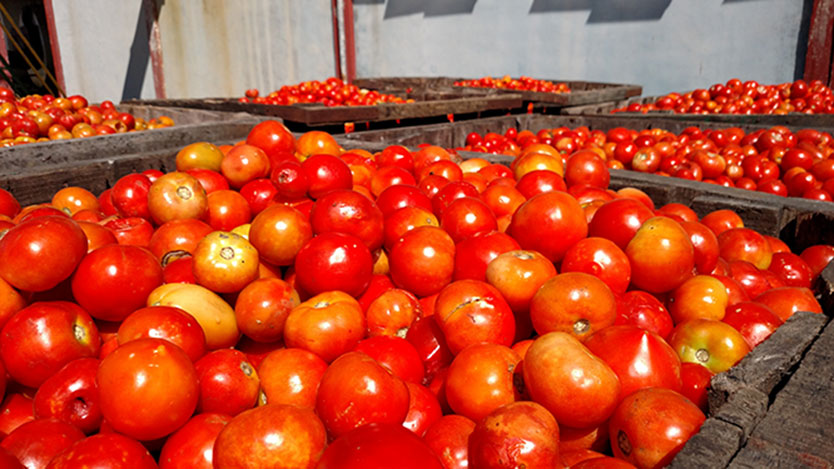
Canning Industry in Ciego de Ávila
Despite the limitations of chemical fertilizers and more suitable varieties of crops in the agricultural sector, the Canning Industry of Ciego de Ávila keeps its mills active in tomato processing, of which they have already used more than 4,000 tons.
These amounts became more than 600 tons of pulp, which will be used in the production of different sauces, Noemí Iglesias Falcón, director of the Base Business Unit (UEB) Canned Fruit and Vegetables, informed to the Cuban News Agency.
She specified that the tons of pulp, to date, could have been higher, but the yield has been between 80 and 85 percent because the planted varieties of the vegetable are not the ones with the best behavior.
She explained that brix degrees are between 3.4 and 3.6, when those intended for the processing industry require a minimum of 4.0.
About 8,000 tons of this coveted food, a powerful natural antioxidant and rich in vitamin C, A, K, iron and potassium, are planned to be ground, the largest quantity in the Majagua factory, the other is located in the Municipality of Florencia, the directive pointed out.
She enhanced that prior to the campaign, the raw material reception and grinding areas were improved in the two units of the UEB.
They also reviewed the two concentrators (huge pans that are responsible for dehydrating the pulp and concentrating the juices) and the aseptic line for packaging, in the Majagua factory, the directive explained.
Pedro Manuel Díaz González, specialist in tomato cultivation in the Provincial Delegation of Agriculture, clarified that the forecast is to assure the Ceballos Agro-industrial Company about 7,500 tons, coming from their fields, fundamentally, and Canned Fruits and Vegetables another 8,000 tons.
Although—he added—good yields are not in sight, because losses due to rot due to the rains and because phytophthora is present in the plantations, the cause of one of the most well-known tomato diseases: downy mildew or late blight, which cause brown spots on leaves.
To date, they have delivered more than 4,000 tons to Canned Fruit and Vegetables, some 3,400 to the Ceballos Agro-industrial Company with its mini-industries, and another 300 to the Food Company, amounts that represent almost 50 percent of the total plan, he added.
Among the tomato varieties that were planted are Elbita, L-43 and M-2, which are more of a short cycle compared to those for industrial purposes and that the producer does not have supplies to lengthen the vegetative period and achieve higher volumes at 85 and 90 days it assumes the planting of these to be able to deliver a harvest after 70 days.
Only the TY-53 variety is for industrial purposes, but it was also affected by the lack of chemical fertilizers, Díaz González concluded.
